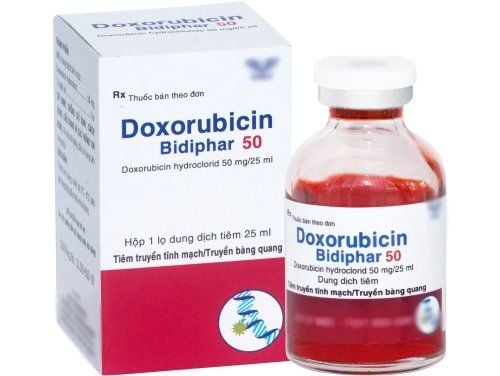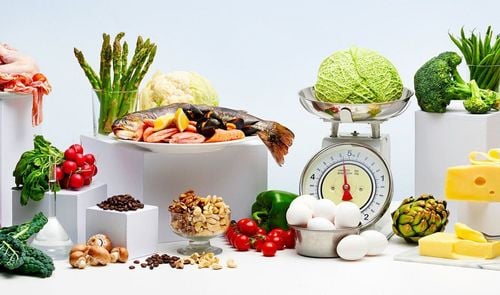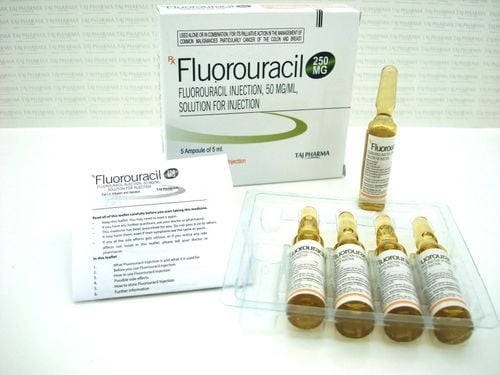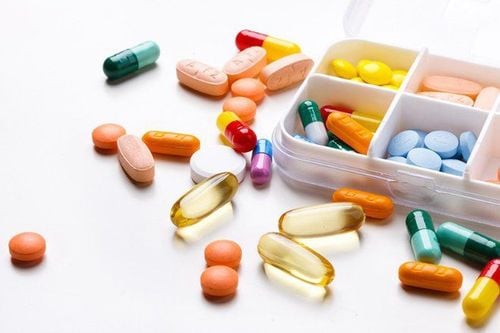This is an automatically translated article.
A healthy diet plays a particularly important role in the treatment of cancer in general and breast cancer in particular. Proper nutrition can help the body recover quickly, limit the side effects of cancer treatment and reduce the symptoms of the disease.
1. How should breast cancer patients eat?
A healthy diet is especially important for patients with breast cancer. Proper nutrition can help the body recover quickly after cancer treatment. A healthy diet can provide the following benefits:
Maintain an ideal weight Helps body tissues stay healthy Reduce cancer symptoms and treatment side effects Helps strengthen the immune system translation Reduce fatigue Improve quality of life Breast cancer treatment can have negative effects on the body. Research shows that about 50% of people with breast cancer experience depression or anxiety. Because breast cancer can dramatically affect both physical and mental health, it can negatively impact your appetite. Making good food choices can help nourish the brain and body to continue fighting disease. Many patients wonder what is the best food for breast cancer. In fact, there is no specific diet recommended for people with breast cancer. Nutrient requirements can vary depending on many factors, including your body weight, nutrient deficiencies, medications, and any symptoms you're experiencing. The following foods are based on general recommendations for maintaining overall health while living with breast cancer:
Nutrient-rich foods such as fruits and vegetables, whole grains, legumes, protein sources like chicken and turkey, fatty fish like salmon and plant-based sources of protein like lentils and nuts Protein-rich foods and healthy fats: If you need to gain weight, combine sources healthy fats like nuts, avocados and olive oil as well as protein sources like eggs, chicken, lentils and fish. Protein-rich foods are especially important for maintaining muscle mass. Blending liquids like milkshakes, smoothies, juices or soups for those times when you don't want to eat solid foods. High-fiber foods like whole grains, flaxseeds, legumes, vegetables, and fruits to treat constipation. Breast cancer patients should maintain 25-30 grams of fiber per day. Whole grains are unprocessed foods that are high in carbohydrates, fiber, phytochemicals, vitamins, and minerals. Research at Soochow University (China) suggests that foods high in fiber can change hormone activity linked to some cancers.

Ung thư vú nên ăn gì là vấn đề được nhiều bệnh nhân quan tâm
2. Foods that breast cancer patients need to avoid
When feeling fatigued due to treatment-related side effects, you may be able to tolerate only specific foods. When you're feeling well, it's best to follow a nutrient-dense diet full of foods like fruits and vegetables, protein sources like chicken and fish, and fiber-rich foods like beans and peas. healthy fats like avocado, olive oil, and nuts. Under certain circumstances, you may need to avoid or reduce your consumption of specific foods and drinks, including:
Alcohol: Beer and alcohol can interact with cancer medications. There is also some evidence that drinking alcohol may increase the risk of recurrence and death for existing breast cancer. Spicy, crunchy or acidic foods. They can increase a sore throat, which is a side effect of chemotherapy. Undercooked foods: If you have breast cancer, you're at higher risk for infection. Avoid raw foods like sushi and oysters during treatment. Cook meat, fish, and poultry to a safe temperature before eating. For the same reasons, avoid raw nuts, expired or moldy foods, and leftovers left in the fridge for more than 3 days. Red and processed meats Sugary drinks: Consuming low-sugar beverages can help you maintain a healthy weight. Ultra-processed foods and refined grains: A 2018 study found a 10 percent increased risk of breast cancer for those who ate ultra-processed foods (Ultraprocessed foods are those industrial variables, often with 5 or more ingredients, including additives, colorants, preservatives...) Eating foods that contain certain compounds called phytochemicals can help your body against cancer. These substances are mainly found in foods of plant origin. Some studies suggest that these compounds help reduce the risk of cancer developing or returning, but more research is needed to determine the exact effects of these compounds on cancer pathology. . For example, beta carotene, which can help prevent the growth of malignancies, can also minimize the negative effects of chemotherapy drugs without reducing the effects of the treatment on cancer cells.
3. Some diets breast cancer patients can apply
Many patients with breast cancer ask what to eat and try to find answers on the internet. Many sources claim that a few diets can cure breast cancer. Overall, studies show that a balanced diet rich in fruits, vegetables, whole grains, poultry, and low-fat dairy products can have a positive impact on survival. of cancer. Conversely, eating processed foods, foods high in sugar or fried foods can have a negative effect. So any diet, such as the Mediterranean diet, that promotes this type of eating can help support cancer recovery. If you want to try the following diets, it is best to consult a nutritionist for advice:
Keto diet
Keto diet means eating foods with high fat content , low in carbohydrates. You drastically cut back on carbohydrates to put your body into a state of ketosis, where the body is forced to burn stored fat for energy. Although some studies have shown that the keto diet has promise for some types of cancer, it has not been shown to help treat breast cancer. It can also alter the chemical balance in your body and this may pose some risks.
Plant-based diet
A plant-based diet means that you mainly eat foods like fruits, vegetables, whole grains, legumes and nuts. This is similar to a vegetarian or vegan diet, but many people who follow a plant-based diet can still eat animal products. The American Institute for Cancer Research recommends following a plant-based diet to prevent cancer. Their research shows that cancer survivors can also benefit from this diet. This diet allows you to get fiber, vitamins, minerals, and phytochemicals from plant foods, while also getting protein and nutrients from products of animal origin.
Mediterranean diet
If you follow the Mediterranean diet, it means you are eating a variety of fruits and vegetables, as well as whole grains, nuts and seeds. This diet also includes olive oil, beans, dairy and proteins like chicken, eggs and fish in lesser amounts. The foods you eat with this diet tend to be unprocessed. You can drink alcohol in minimal amounts, usually wine and usually with meals. This diet minimizes sugar, salt, and saturated fat and doesn't include a lot of processed meat. Many studies show that adherence to the Mediterranean diet can reduce breast cancer risk and have a positive impact on breast cancer mortality. In addition, research also shows that this diet can help improve sleep quality, reduce pain, and promote overall health.

Bệnh nhân ung thư vú có thể áp dụng một số chế độ ăn kiêng phù hợp
4. Some tips to build a balanced diet for breast cancer patients
Breast cancer symptoms and side effects of treatment can make you feel unwell so cook, eat and plan as usual. Here are some tips to help you build a healthy diet the easy way:
Eat small meals: Nausea, bloating and constipation can make it difficult to eat three large meals a day. To get the calories you need, eat small portions five or six times per day. Add snacks like hard-boiled eggs, yogurt with berries, and peanut butter to crackers or applesauce. Consult with a registered dietitian: A dietitian can help you design a healthy eating plan that fits your eating preferences and nutritional needs. They can also teach you how to reduce cancer treatment side effects such as irritability, nausea, loss of appetite, taste changes, etc. If possible, work with a dietitian. nurses with experience in treating patients with breast cancer. Use the right cookware: Sometimes chemotherapy can leave a bad taste in the mouth that makes food taste bad. Some foods, such as meat, can have a metallic taste. To improve the taste of food, avoid metal cookware. Instead, try using plastic cutlery and cooking in glass pots and pans. Add more fluids: If your mouth is too sore to eat solid foods, get your nutrition from liquid products like smoothies or nutritional drinks. Also, treatment side effects such as vomiting and diarrhea can make you dehydrated. Drink at least 8-12 cups of water per day. While on treatment, there are some liquids you should try, such as juice, milk, and low-sodium water. Limit caffeine and try to eat foods with a lot of water like fruit. Reference manuals: Currently, there are quite a few books on how to build a diet for cancer patients in general and breast cancer patients in particular. If you find it difficult in the institute to develop a healthy eating plan, the books above can help. Eating a nutritious diet when you have breast cancer has many health benefits. Not only will it help you recover faster, but it can also boost your immune system. If you are considering a diet or have trouble sticking to a healthy eating plan, consult your doctor or dietitian.
Please dial HOTLINE for more information or register for an appointment HERE. Download MyVinmec app to make appointments faster and to manage your bookings easily.













